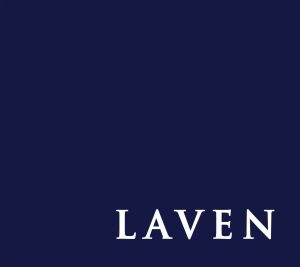A review of ESG related developments in the industry
The question of whether an investor will sacrifice returns by ‘doing good’ is a question that is more frequently asked. The MSCI KLD 400 Social Index was created as early as 1990 to track socially responsible companies for that exact purpose. As investors have become more aware of socially responsible investing (SRI), the alternatives industry has responded with what has become to be known as the ‘greenwash’ phenomenon – emphasising the environmental, social and governance (ESG) aspects as well as impacts of investments as an attempt to attract investors.
Whilst the idea of SRI dates far back and has been growing in the UK and Europe, conversely the US appears to be lagging behind and playing catch up. The S&P launched its S&P 500 Environmental and Socially Responsible Index as recently as 2015. In the alternative investment world, investors are starting to embrace ESG and are paying closer attention to fund managers’ procedures in ESG matters. This has also impacted the due diligence world.
The California Public Employees’ Retirement System (CalPERS) unveiled details of a 5-year ESG strategy in late 2016, and plans to scrutinise its managers’ practices using the UN Principles for Responsible Investment (UNPRI) ESG Disclosure Framework as guidance. Another major pension fund, the Ontario Teachers’ Pension Plan, now includes ESG as a mandatory part of its due diligence agenda. In Europe, the Dutch metals industry pension scheme Pensionfund Metalektro (PME) has said that it will improve its ESG policy by linking 10% of its assets directly to the UN’s 17 Sustainable Development Goals (SDGs) over the next five years. Together with the civil service scheme Stichting Pensioenfonds ABP (ABP) and the healthcare pension fund Stichting Pensioenfonds Zorg en Welzijn (PFZW), PME is the third significant Dutch pension fund linking a substantial part of its investment portfolio to the SDGs.
As investors become more informed on the topic, a higher level of integration and transparency of ESG policies within investment procedures is expected from the fund industry.
A good example of whether an investment may be categorised as ESG-compliant was recently posed by the Investment Management Due Diligence Association (IMDDA) in a March 2017 newsletter. It noted that the lack of a clear and accepted definition of ESG restricts investment professionals from successfully incorporating ESG in their investment strategies and organisations. The unavailability of such a definition also impedes a meaningful engagement with ESG-focused investors. The IMDDA newsletter noted that there is often room for debate whether or not an investment is a true ESG investment, and this can potentially lead asset managers to employ ambiguity in marketing materials and offering documents. The IMDDA also noted that in the SEC’s Concept Release in April 2016, the SEC has sought feedback for improved clarity on ESG disclosures by public companies, recognising the increased importance and materiality of ESG to shareholders.
In March 2017, the OECD published due diligence guidelines regarding responsible business conduct for institutional investors, outlining the procedures and key points regarding governance which asset managers should consider when investing in companies. The guidelines also enable investors considering ESG-compliant funds to benchmark a manager’s ESG policies and procedures against best practice standards.
Laven Partners’ Operational Due Diligence (ODD) practice complies with industry best practice standards, aiming to help alternative asset investors avoid operational risks when investing in funds. With the increasing significance of ESG, since early 2017 Laven Partners’ ODD reports incorporate a dedicated chapter on ESG, covering aspects such as UNPRI, policies for complying with ESG standards and dedicated ESG or sustainability functions within the organisation. Laven Partners seeks to regularly incorporate industry developments – whether in best practice standards or regulations – in its due diligence process and with the recent launch of the UNPRI’s Responsible Investment Due Diligence Questionnaire for Hedge Funds, work on the industry’s best practice ESG standards continues.
Find out more about our Due Diligence services here.




